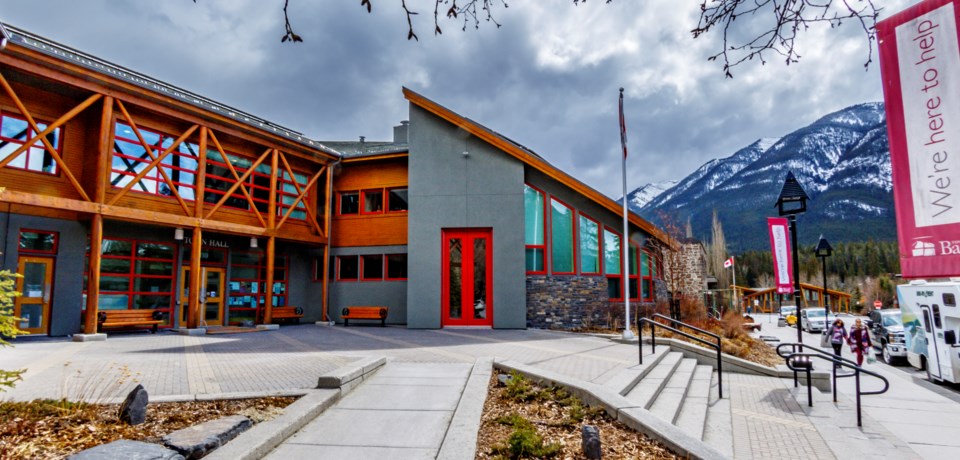BANFF – Banff residents can expect their tax bills in the mail in the coming month.
On Monday (April 24), council passed third and final reading of the mill rate bylaw, which determines the relative level of taxation between residential and non-residential properties.
The overall tax levy – which includes municipal, provincial education and Bow Valley Regional Housing taxes – is up 4.8 per cent from $30.3 million in 2022 to $31.8 million this year.
However, Town of Banff officials are quick to warn this is not indicative of the expected change on individual tax bills, especially within the various commercial sectors including accommodation, restaurant-retail and industrial.
While the average residential property would see an overall 4.8 per cent increase, they say the average hotel would see about a 10 per cent increase, an average downtown mixed-use property would see a six per cent increase and an average industrial property would see a 31 per cent decrease.
Chris Hughes, the director of corporate services for the Town of Banff, said the tax bills will be mailed out by May 31 at the latest and taxes will be due by June 30.
“If we can get them out earlier, we will,” he said.
The approved mill rate split of 5.5974:1 equalizes the annual percentage increase in the municipal portion of the tax levy between residential and non-residential properties at 11.11 per cent.
The Municipal Government Act caps the mill rate split at 5:1, however, this year it is approximately halfway between the 2022 split of 6.3670:1 and the 5:1 target, which the Town of Banff is mandated to achieve by 2027.
Coun. Hugh Pettigrew was unsuccessful in his attempt to reduce the municipal tax burden on residents, getting support only from Coun. Ted Christensen.
He sought to cut the 11.11 per cent municipal tax increase by slightly less than one per cent by using $174,864 from the budget stabilization reserve, arguing the reserve’s current balance of $1.13 million is $174,864 above the minimum threshold of $957,559.
“I think that there’s movement here to help our residents out," he said.
Mayor Corrie DiManno was quick to oppose the move, noting the budget stabilization reserve is already underfunded and elected officials are in the midst of doing a course about emergency management.
“I’ll tell you what – you don’t know what you don’t know, but you know you’re going to need money to cover it,” she said.
“When I think of the last few years – the pandemic, cybersecurity attack, flood warnings – we need to be able to have the funds to be able to mitigate and to do whatever kind of response we need to do. We need that money so I am not interested in taking away from that reserve.”
In addition, DiManno said Pettigrew’s pitch would mean council is looking to fund $174,864 in the 2024 budget.
“Unless the plan is to take that from reserves, then you’re needing tax support to cover that hole,” she said.
“We worked really hard to dig ourselves out of deep cuts – 17 per cent budget cuts we made during the pandemic – and that was because we were not keeping up with transfers to reserves, which have now put us in a position that is a bit frightening.”
Coun. Chip Olver echoed many of the mayor’s comments.
In addition, she said Banff’s financial plan stipulates the budget stabilization reserve is to be used for non-recurring, one-time expenditures.
“I think in our financial plan that we have the right reasons there for when we use the budget stabilization,” she said.
“If we take an ongoing annual expense and fund it from budget stabilization, then we start next year’s budget behind by that amount of money, so that concerns me.”
This year, the Town of Banff is collecting just over $22.4 million in municipal taxes, an 11.11 per cent increase over 2022. The provincial school requisition dropped about eight per cent from $9.55 million to $8.8 million, while the Bow Valley Regional Housing levy dropped 5.6 per cent from $532,773 last year to $502,878 this year.
For 2023, the Town of Banff has seen a total residential taxable assessment increase of 9.9 per cent from $1.95 billion to $2.15 billion, while non-residential assessments have increased by 26.5 per cent from $1 billion to $1.25 billion.
The total overall taxable assessment for the Town of Banff has increased by 15.5 per cent from $2.95 billion to $3.4 billion.
“This total assessed value surpasses the previous high set in 2020 at $3.2 billion,” said Dorothee Esquerre, the finance manager for the Town of Banff.




